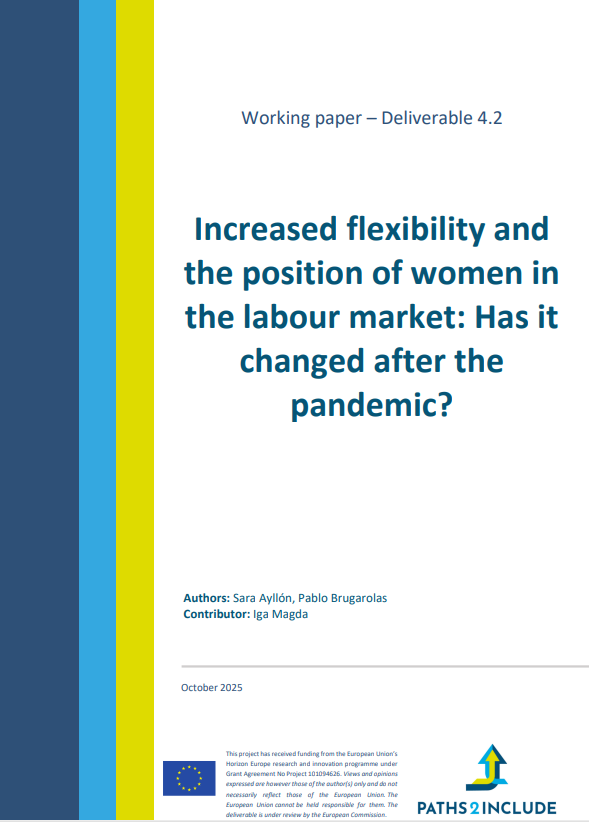This paper studies the extent to which the increased flexibility brought about by the coronavirus pandemic, which allows more employees to work from home (WFH), has helped improve the position of women in the labour market in recent years and, in particular, that of mothers. Using data from the EU–Labour Force Survey for 20 countries and a shift-share instrumental variable approach, we find that the expansion of WFH narrowed the full-time employment gap and substantially compressed hours disparities—eliminating the shortfall in actual hours and trimming the gaps in desired and usual hours—while leaving the prevalence of permanent contracts essentially unchanged.
This paper is organised as follows. After this introduction, Section 2 provides all the necessary details regarding data and definitions. Section 3 outlines the empirical strategy. Section 4 details the results and presents some heterogeneous analysis. Finally, Section 5 offers a conclusion and discusses avenues for future research.
Authors: Sara Ayllón, Pablo Brugarolas

